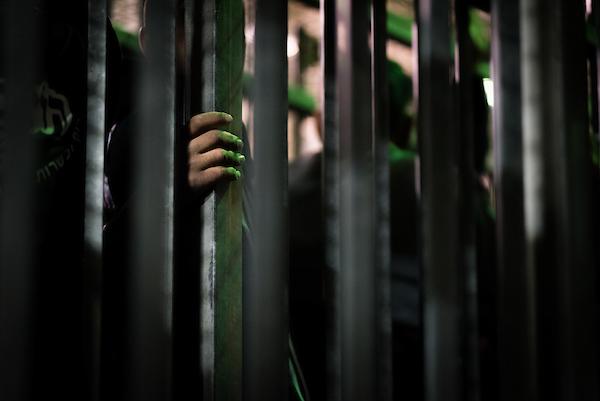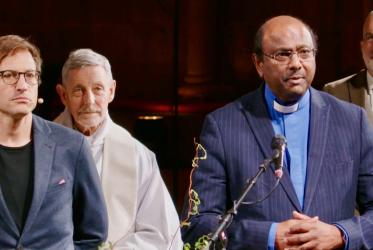The World Council of Churches (WCC) made a positive impact at the 41st session of the United Nations Human Rights Council, held 24 June through 12 July.
The WCC has a long history of engagement with the United Nations human rights system, in witnessing and advocating for human dignity and justice on behalf of the worldwide ecumenical movement.
“This system now comprises a comprehensive array of mechanisms and procedures for promoting accountability to human rights obligations and to the recognition of human dignity on which human rights law is founded,” said Jennifer Philpot-Nissen, programme executive for Human Rights and Disarmament for the WCC Commission of the Churches on International Affairs. “In the context of the Pilgrimage of Justice and Peace, the WCC seeks to encourage and support member churches and partners in using these instruments for their own public witness for human dignity and justice, and to raise awareness about issues of concern from the communities they represent.”
An overview of issues
Philippines
Among the successes noted during the session was passage of a resolution condemning human rights violations in the Philippines, where many have suffered at the hands of their own government. Thousands of people have been arbitrarily killed by security forces, and those who speak out – including members of the clergy and other church representatives - have received death threats, have been arrested, or have been forcibly disappeared. The WCC supported a resolution condemning the situation in the Philippines (which was tabled by Iceland during the 41st session), reaching out to governments who were uncertain to vote in favour of it.
The resolution empowers the United Nations to carry out an investigation into the situation over the coming year.
Climate action
The WCC also delivered statements, and co-convened and participated in side events, including an event “Integrating a human rights perspective on climate action” with partner organisations which included ACT Alliance, Lutheran World Federation, and Franciscans International. One of the reports presented to the Human Rights Council was an analytical study on gender-responsive climate action for the rights of women.
The side event discussed the impacts of climate change particularly on women, youth, minority groups, and indigenous communities, and urged states to ensure that human rights are included in their climate policies and actions.
Israel-Palestine
The WCC also delivered a statement calling on the government of Israel to cease demolishing Palestinian homes and structures. In Wadi-Al-Hummus in southeast Jerusalem, 16 large buildings which are home to 500 Palestinian people, have been given demolition orders with request to self-demolish by 18 July. Two hundred people have already been displaced in East Jerusalem this year.
Dominican Republic
The WCC also continued its engagement regarding the serious issue of statelessness in the Dominican Republic. A constitutional court ruling in 2013 had the discriminatory effect of removing Dominican citizenship from many persons of Haitian descent and leaving them at risk of becoming stateless. The country went through its human rights review by the Human Rights Council in January and the government received many recommendations to address this violation. The WCC statement regretted the failure of the government to accept these recommendations, and urged that the right to a nationality be fully protected.
Iran
The World Evangelical Alliance and WCC delivered a joint statement expressing concern over the situation of freedom of religion in Iran. The Evangelical Assyrian Presbyterian Church of Tabriz was closed by authorities in May, following years of pressure and discrimination against the Evangelical Presbyterian churches and their leaders. Church property has been seized and some church leaders pressured to leave Iran. Since the statement - which called upon the Iranian authorities to allow the church to re-open - was delivered, the Iranian authorities have reinstated the cross on the Tabriz church, but it remains unclear whether worship services will be allowed to be resumed.
Link to the "Commission of Churches on International Affairs"






